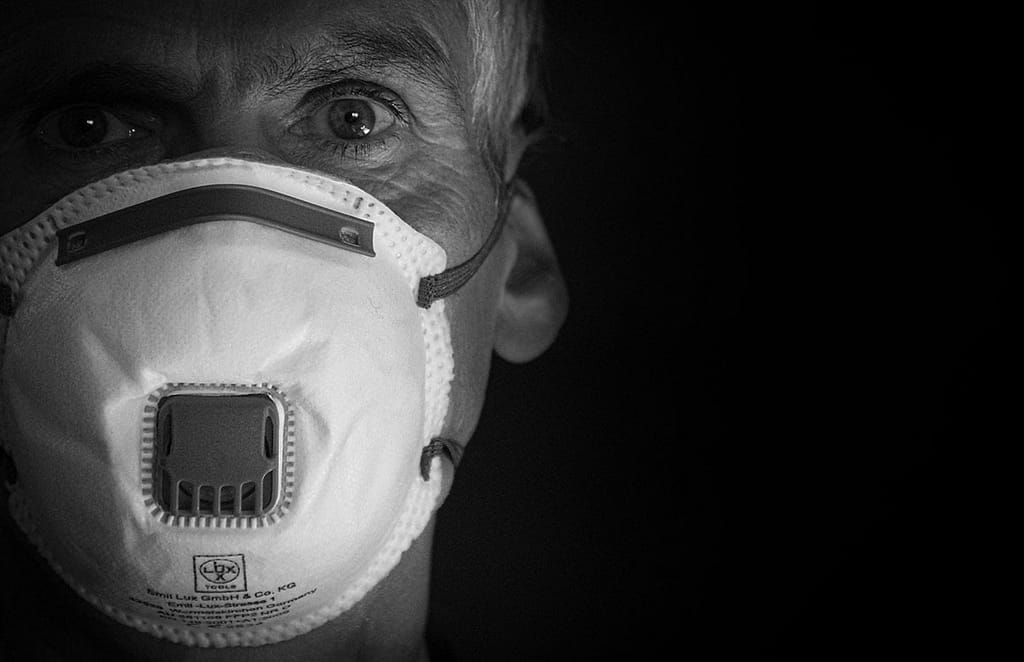PPE-Induced Movement Dysfunction
For front-line Coronavirus healthcare workers face masks are critical components of personal protective equipment (PPE), and were vital in reducing the risk of contagion after exposure to SARS in 2003, PPE guidelines from both the World Health Organization (WHO) (2003) and the US Centers for Disease Control (CDC) (2004) determined face masks with a minimum 95% filtration efficiency are required for healthcare workers exposed to contagion droplets.
While few question the efficacy and need for respiratory protection among front-line healthcare workers of the COVID-19 pandemic, few are publicly discussing the physiologic demands and psychologic responses of those required to wear PPE face masks for long hours.
A brief review of just a few research articles demonstrates just how well documented are the physiological effects of dysfunctional breathing patterns.
“Alteration of cervicothoracic mobility impairs normal breathing mechanics by reducing diaphragm mobility and strength.”
(Chaitow, 2016)
“Abnormal respiratory patterns and pelvic floor and diaphragmatic function were observed. . . , together with an inability to consciously elevate the pelvic floor, in 9 subjects with a clinical diagnosis of sacroiliac joint pain.
(2007, O’Sullivan)
“Inefficient breathing [can] result in muscular imbalance, motor control alterations, and physiological adaptations that are capable of modifying movement.”.
(Bradley and Esformes, 2014)
“Preventing or slowing kyphosis progression may reduce the burden of pulmonary decline in older adults.”
(Lorbergs, 2017)
The consequences of biomechanical breathing dysfunction are well documented and include reduced ability to regulate intra-abdominal pressure, poor motor control, and poor spinal and postural stabilization support. These muscle imbalances, along with diminished motor control and stability, alter functional motor patterns of control and stability and eventually lead to neck and back pain, headaches, pelvic pain and even incontinence. In addition, breathing dysfunction plays several roles in physiological and psychological homeostatic regulation.
(Courtney, 2009)
Furthermore, it has been shown that N95 respirators and surgical facemasks microclimates surrounding the nose and mouth have profound influences on heart rate, thermal stress, and subjective perception of discomfort. This is due to increased CO2 retention, which can result in sympathomimetic anxiety related perceptions due to the release of neurotransmitters which manifests physically as elevated heart rate and respiratory rate, palpitations,and elevated blood pressure.
(Cheung, 2010)
In reviewing the literature, the evidence is clear: in today’s world-wide pandemic environment, the increased and prolonged respiratory load due to chronic PPE requirements have the potential to create significant physical and psychological barriers under already stressful conditions. Underlying physiologic and psychologic dysfunctions which are usually “silent” under normal daily processes and operations, are suddenly exposed and lead to increased musculoskeletal pain and fatigue, increased heart-rate and metabolism, and even sympathetic distress and feelings of anxiety and claustrophobia. This can significantly impair your ability to maintain mental and physical preparedness when your team and your patients need it most.
The good news is that clarity and course correction are available to you right now. As complex as the interplay between biochemical, biomechanical, and psychophysiological dimensions is, a simple functional online breathing assessment can rule out breathing dysfunction with 89% certainty. Even better, if the assessment is failed, further systematic assessment and corrective biomechanical interventions are immediately prescribed, allowing you to gain control of your breathing dysfunction and find a clear path to success..
Are you experiencing symptoms of stress, anxiety, and fatigue that may be related to underlying breathing dysfunction? Are you wondering if your N95 respirator or surgical mask could be enhancing feelings of claustrophobia, or creating physical symptoms such as headaches, back and pelvic pain, and even incontinence? Contact Virtue Medicine now for your functional breathing assessment and corrective prescription. Get clear answers and get back into the game.















